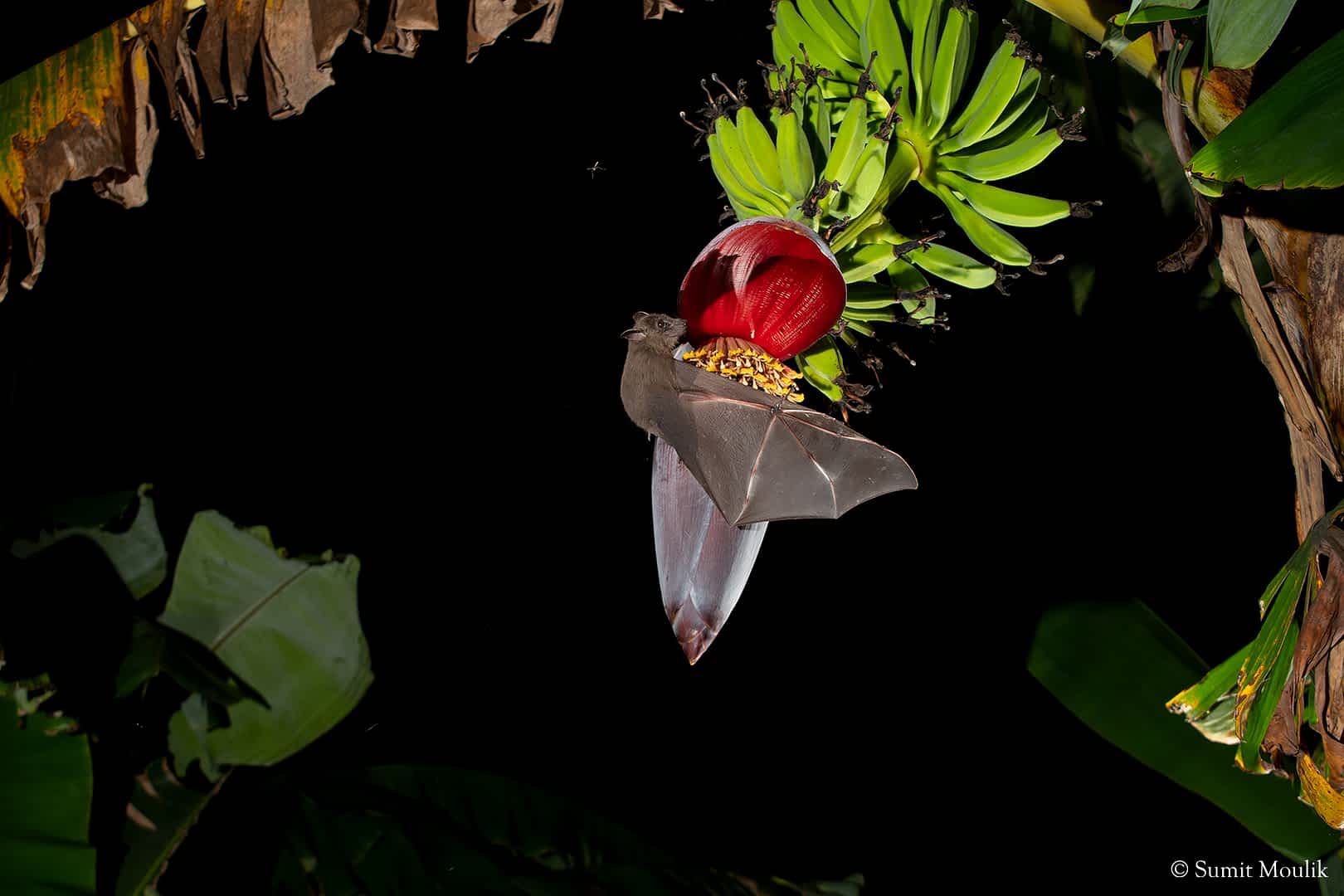Banana trees and bats share an interesting ecological relationship, primarily centered around pollination and seed dispersal.
- Pollination: Bats play a crucial role in pollinating banana trees. While most bananas are propagated through cloning rather than seeds, wild banana varieties do produce seeds, and bats can aid in their pollination. In regions where wild bananas grow, bats are often attracted to the flowers for their nectar. As bats feed on the nectar, they inadvertently transfer pollen between banana flowers, facilitating the fertilization process.
- Seed Dispersal: Although commercial bananas are typically seedless and reproduce through cloning, wild bananas produce seeds. Bats can also contribute to the dispersal of banana seeds. After consuming ripe bananas, bats may carry seeds to new locations, aiding in the spread and genetic diversity of banana plants.
- Roosting Sites: Banana trees, with their large leaves and sturdy stems, can provide suitable roosting sites for certain bat species. Bats may take shelter among the leaves during the day, providing them with protection from predators and harsh weather conditions.
Overall, the relationship between banana trees and bats highlights the intricate connections between plant species and their animal counterparts in ecosystems. Bats benefit from the resources provided by banana trees, while the trees rely on bats for pollination and potential seed dispersal, contributing to the overall health and diversity of the ecosystem.

